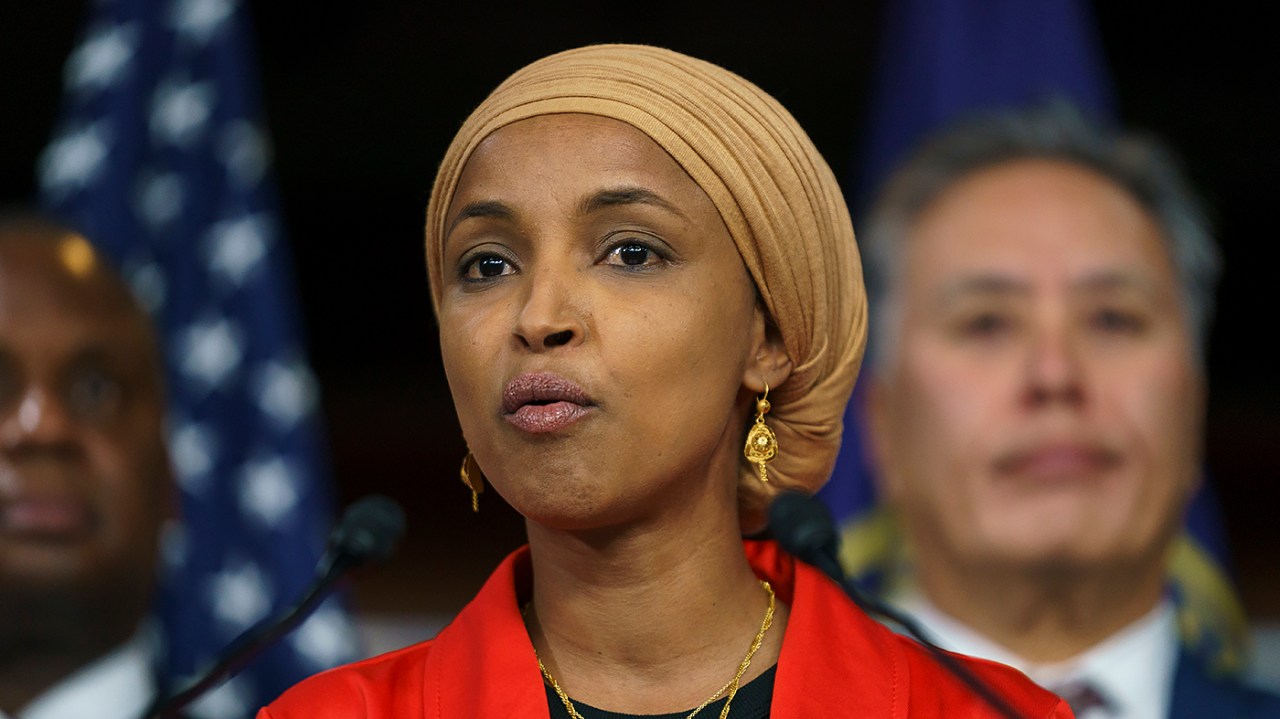Rep. Ilhan Omar (D-Minn.) said policy differences toward Israel between her and President Biden won’t stop her from supporting him in the November general election.
“Of course,” Omar said Tuesday, when asked by CNN’s Abby Phillip on “NewsNight” whether she would vote for Biden if the election were held that day, in a clip highlighted by Mediaite. “Democracy is on the line, we are facing down fascism.”
“And I personally know what my life felt like having Trump as the president of this country, and I know what it felt like for my constituents, and for people around this country and around the world,” Omar continued. “We have to do everything that we can to make sure that does not happen to our country again.”



With a proportional representation system the parties hold all of the power and the only thing that matters is the negotiations that happen behind closed doors to form a coalition.
If the party you voted for isn’t part of the ruling coalition then your vote didn’t matter. Sure you got someone sitting in a seat in a legislature that shares your opinions on things but the agenda is already been determined by those who negotiated the coalition.
And while you may thinking that it’s possible that a party that shares your views might get into the ruling coalition, but it’s just as likely that a small far right party could get into a coalition, which is exactly what happened in Israel’s proportional representation system.
Or as we saw in the EU’s proportional representation system, a fringe separatist party can gain notoriety and expand their influence on the population and you end up with a Brexit.
“First past the post” or as I like to call it, a community representation system, has individual representatives control the seat. That individual representative can leave the party and will still hold the seat. Which means the party has to keep the representatives of the communities happy. And those representatives have to keep their communities happy. If a minority group in a community is willing to organize they can influence the representative, and that representative can influence the party. The power dynamics flow from the people upwards.
Proportional representation systems only look good from the perspective of a spreadsheet. From the perspective of power dynamics (which is all important in politics) they’re terrible systems. You get to vote for a party that completely conforms to a checklist, but that party may have zero impact on real policy. Sure you have to make an effort to influence your representative in a community representation system, but shouldn’t the people willing to make the most effort have the most influence?
What system do you think is better, then? Because, reading that post, the main takeaway I got was basically “the people that lost a vote don’t have much say in government,” which… That’s how democracy works? I’m confused.
In a multi-party system, that’s fine. Parties accrue delegates by appealing to a voting base. And candidates get onto the slate by working in and for the parties to bring in new supporters and achieve policy changes.
That depends on the parliamentary rules and constitutional provisions. But - generally speaking - if you’ve got a delegate you support in the parliament you’re much better off than if you’re casting a protest vote for an individual or group who will never hold a seat. Even if its a lone Ron Paul / Bernie Sanders esque voice, that’s a foundation around which to build a movement. By contrast, a Ralph Nader outsider who gets seen as a spoiler candidate every four years is going to build more hostility to your movement the more successful it gets.
Love my Jim Justice style politician
Why would I want a candidate that can win under a party banner that I support and then turn coat the moment they’re ensconced in a four or six year term of office?
Not if they’re doing the one-term Senate gambit, like Kristen Sinema. Six years cultivating favors with corporate interests, and then resign before you party can primary you out so you can take a job as a lobbyist.
Coalition governments build support by appealing to particular interests of the various party members. That means an “Abolish the National Debt” Party and a “Green New Deal Party” are going to form a different kind of government than a “Green New Deal” and a “Small Business Alliance” party. But if you’re interested in debt-politics and I’m interested in clean energy and third guy is interested in business start-up subsidies, we’re all better off supporting for our issue-centric partisan groups than aligning behind a “Generic Liberal” or “Generic Conservative”.